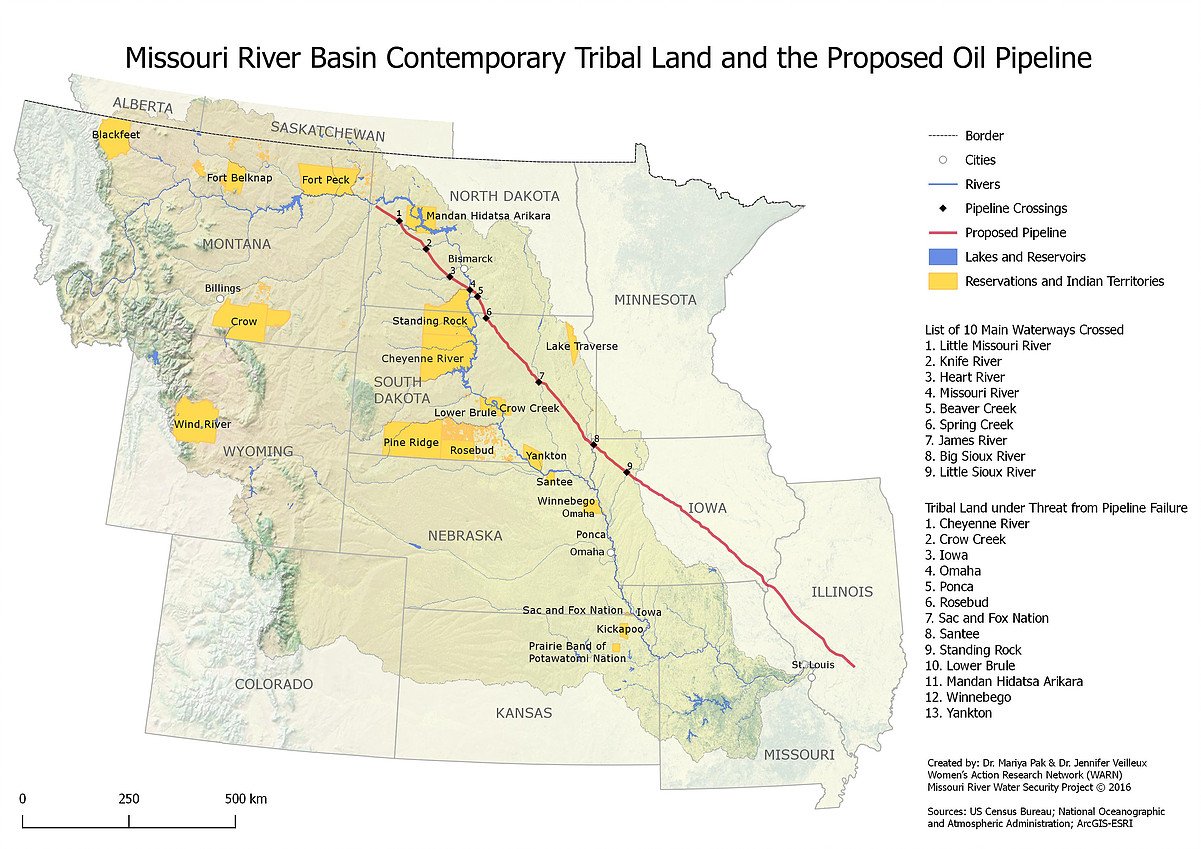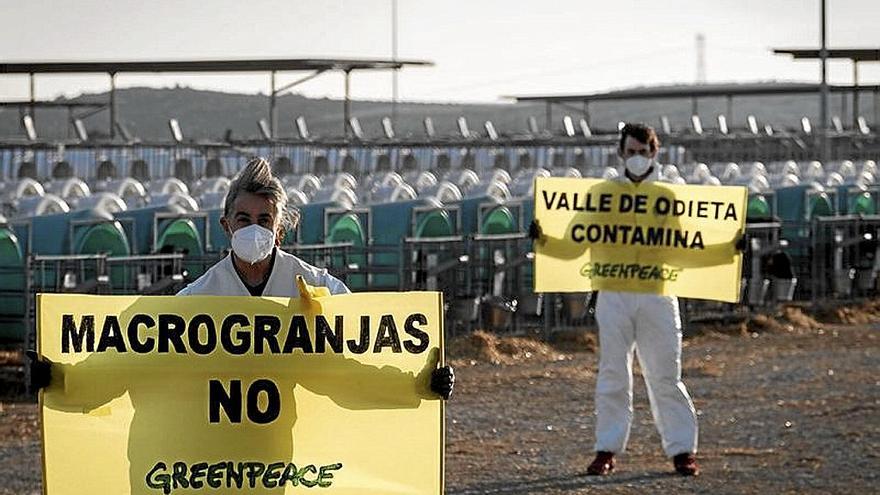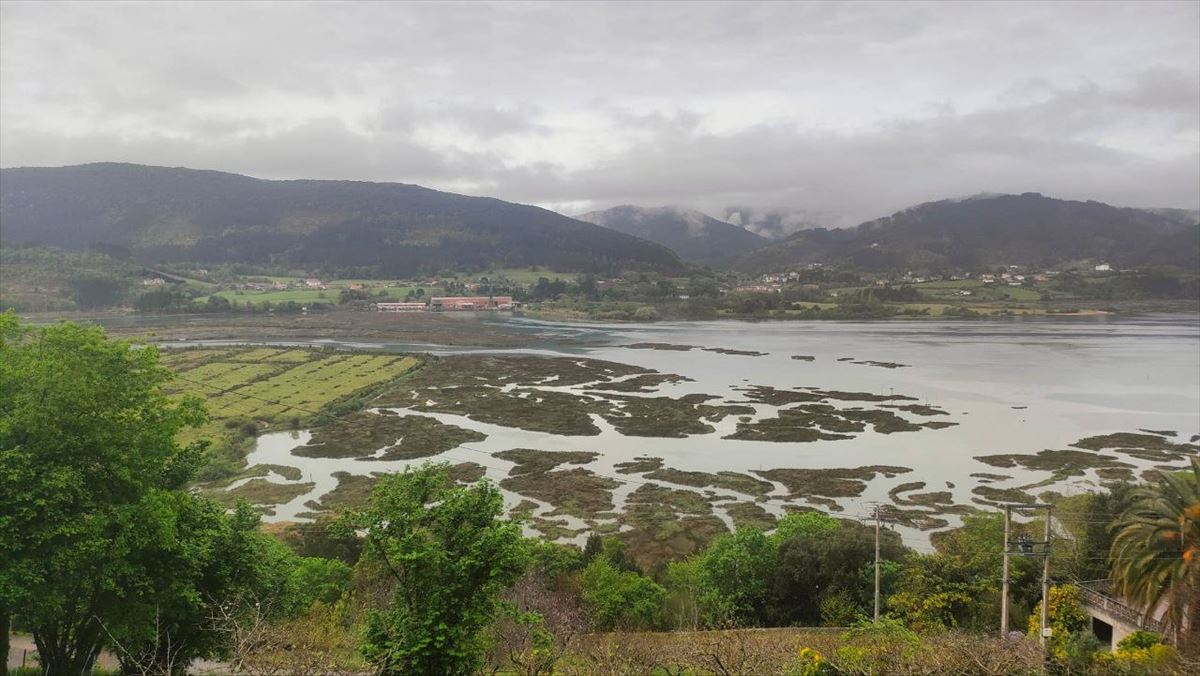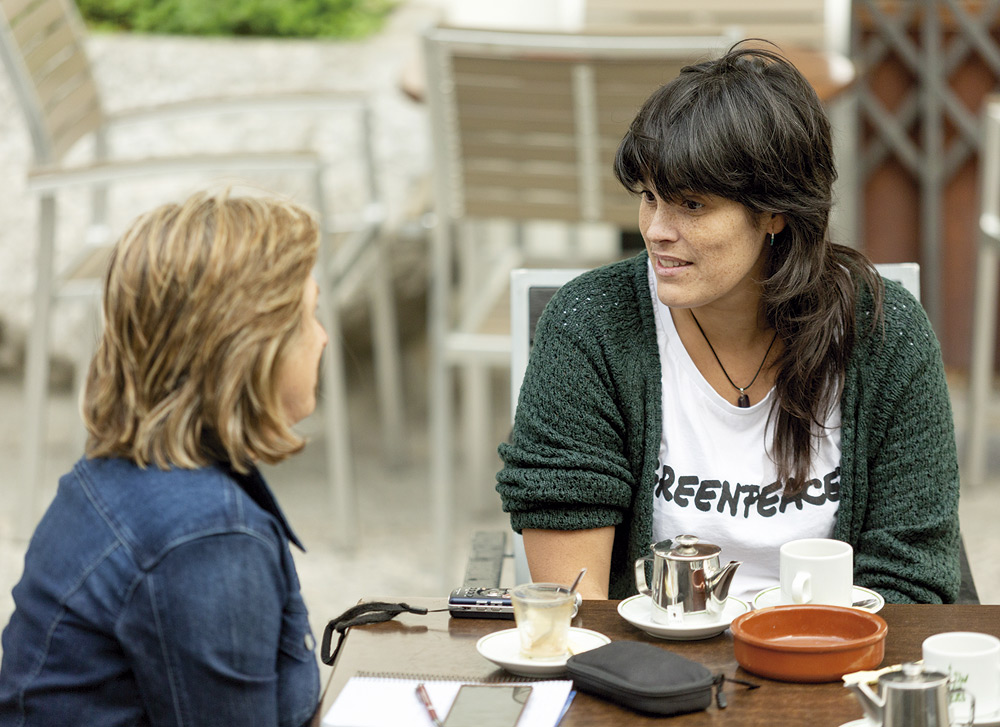Complaints from pipeline company Dakota Access could end Greenpeace in the United States.
- Energy Transfer Partners claims about €900 million to the U.S. ecologist Greenpeace for damages caused in the oil pipeline protests in 2016 and 2017. “If he failed in this trial, Greenpeace could be left out of the fight for climate justice,” the association said.

The judgment follows the complaint lodged by the company Energy Transfer Partners (ETP) against the non-governmental organisation Greenpeace. The company claims Greenpeace about $300 million and additional compensation that could amount to $900 million, Le Monde reported in a statement. He is accused of causing damage to protests against the Dakota Access (DAPL) pipeline in 2016 and 2017, among other crimes. The protests had a major impact, as the pipeline project was not taken into account when the project was carried out. They denounced that the pipeline could cause serious damage to the Mississippi and Missouri rivers, as well as their own lands and “historical and sacred areas”. The company denied these possible damages.
The US company initiated a SLAPP procedure – strategic demand against public participation – against Greenpeace. Greenpeace has said that this procedure, which takes a lot of time and money, is "a punishment." “If it failed in this trial, Greenpeace could be left out of the fight for climate justice,” the NGO said. The trial for these events will be held between February and March 2025, although Greenpeace has assured that "although it is intended to silence the organization, they will not achieve it".
Origin of fracking
Despite allegations of protests in 2016 and 2017, the pipeline case goes far, according to Greenpeace. 2008 was the year of the fracking boom, the hydraulic fracturing technique for extracting fossil fuels from the subsoil. The United States became the world’s largest oil producer and industry needed a simpler method of moving the product to oil refineries and global markets. So in 2014, he proposed the DAPL pipeline project, which would take the crude oil from North Dakota to Illinois and then to the Gulf Coast. Today, this 1,900 kilometer underground pipeline transports 750,000 barrels of oil a day.

Rebellion, repression and violence
The project was rejected by members of the hometown of Standing Rock Sioux and had the support of over 300 tribes and thousands of activists from all over the country to stop the construction of the pipeline, according to entrepreneur Rafael Gonzales in ARGIA. The revolt spread in the spring of 2016 when the company decided it would cross the Missouri and Mississippi rivers, Lake Oahe and the lands of the Standing Rock Sioux Reserve. They organized mobilizations and camps, placed their bodies in front of the construction machinery, caused millions of losses in the DAPL project and the protests provoked international attention.
“By destroying the steles we have left in the world, the government destroys us as a people. We must defend them, because if our world is not finished. Letting the oil company destroy our history, our ancestors, our hearts and our souls, is it not genocide?” said LaDonna Bravebull Allard, the woman who called to organize the first camp, according to ARGIA. ReZpect Our Water, a U.S. youth organization, marked a march from Standing Rock to Washington.
The force of the movement convulsed American businessmen and led to the intervention of the United States Government. “The police began to respond with violence and repression: rubber balls, confusing grenades, ear-damaging weapons, claws and taser pistols, among other things,” González explained in ARGIA. Hunting dogs, as well as water cannons, were used against the protesters in the context of temperatures below zero. Gonzalez reported that companies like Enbridge and ETP, which were behind the project, hired mercenary companies like Tiger Swan and others like them.
Obama Government Slows Down, Trump Restarts
In July 2016, representatives of Standing Rock filed a lawsuit with the aim of blocking the pipeline’s approval. Several people and agents asked the Obama administration to block the permits and stop funding the project to the bank, which denounced that BBVA has invested $120 million in the Standing Rock project. According to González, Obama all he did was slow down the project, but not stop it.
One of Donald Trump’s first decisions when he was invested as president was to drive the construction of the pipeline, which was launched in June 2017. Kelcy Warren, owner of ETP, handed over $250,000 to Trump’s nominations in his first election campaign, and raised $10 million for his re-election attempt in 2020, Greenpeace said. The ETP denounced Greenpeace and other environmental groups, and the law firm he hired for the trial was President Trump himself, who did not hesitate to repeat.
The company accused ecologist groups of terrorism, fraud and defamation of “all kinds of criminal activities”, according to ARGIA, from “eco-terrorism” to drug trafficking.
.jpg)
They have not stopped fighting
Although they built the pipeline, the Standing Rock protests did not stop. As a result of the allegations made, in 2020 a federal judge ordered a comprehensive environmental impact study. However, the closure order of the pipeline was not complied with. Today, the original Sioux people are still asking "for the Army to close the pipeline and do a proper analysis ingurumen.inpaktuaren, not one prepared by the fossil fuel industry."
The ETP complaint states that Greenpeace was the organizer of the protests, not the Sioux people or indigenous water sponsors. “It accuses Greenpeace of things that we have not made demands and tries to criminalize ordinary public defense,” Greenpeace said.
Greenpeaceko 22 militante Cruas-Meysseko zentral nuklearrean (Ardècheko departamentuan) sartu dira astearte goizeko seiak aldera, haren segurtasunik eza agerian utzi nahian. Erabilitako erregai erradioaktiboaren biltegietako bateko horman eskegi dute euren burua haietako... [+]
Greenpeaceko hainbat ekintzailek protesta ekintza egin dute Santurtziko portuan, Saudi Arabiara armak bidaltzearen aurka. Arma merkataritzaren ezkutukeria salatu nahi izan dute horrela, baita ohartarazi ere Espainiako Estatuan ez dela legezkoa herritar zibilen aurka erabil... [+]
Espainian opakua da arma esportazioa, eta ezkutukeria hori legediak bermatzen du gainera. Suhiltzaile baten intsumisio keinuari esker jakin genuen Bilboko portutik Saudi Arabiara armak bidali direla, baina normalena bidalketa horiez ezer ez jakitea da. Ez nondik, ez nori, ez... [+]
Greenpeaceko hainbat aktibistak A Coruñako portuan dagoen Medusa ikatz-biltegiaren sarrera blokeatu dute astearte goizean. Modu horretan, bertara zihoan Gas Natural-Fenosa konpainiaren –hura da biltegiaren jabea– kamioi batek bere zama hustea eragotzi dute... [+]





















